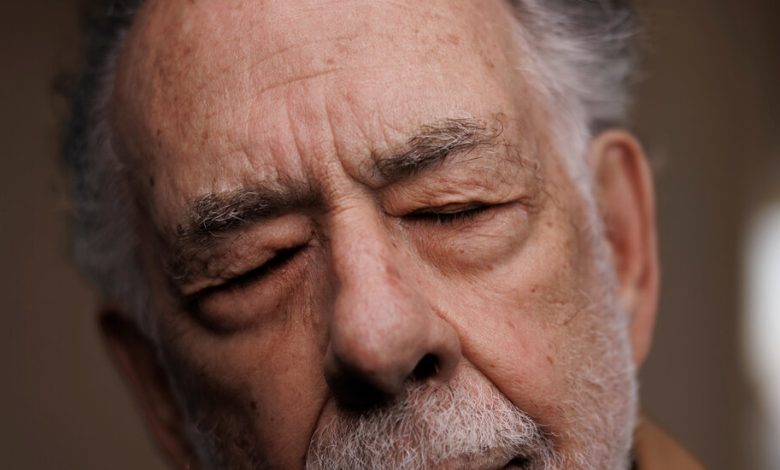Francis Ford Coppola: ‘You Can’t Be an Artist and Be Safe’

The first time that Francis Ford Coppola had a movie in competition at the Cannes Film Festival was in 1967. He was 28 and the movie was “You’re a Big Boy Now,” a neo-screwball studio comedy about a young guy trying to cut loose from his parents. Coppola made it while he was in film school at the University of California, Los Angeles, and it became his master’s thesis project. A month after the festival, he began directing his first big-budget studio film, “Finian’s Rainbow.” It flopped. He then poured some of his savings into a low-budget studio movie, “The Rain People.” It flopped. The next film he directed was “The Godfather.”
Coppola, now 85, was back again at Cannes last month with the epic fantasy “Megalopolis,” a big-screen dream that he has nurtured for more than 40 years. It’s his first movie since “Twixt” (2011), a little-seen horror tale about a genre novelist who says he wants to make something personal. It’s a plaintive refrain that Coppola has voiced repeatedly throughout his career. However celebrated he remains for the studio films that he has directed, Coppola is and has always been an unequivocally personal filmmaker, one whose love for the art of film has recurrently put him at odds with the industry and its media mouthpieces.
Given Coppola’s history of independence and specifically his record of great financial risks (as with “Apocalypse Now”) and sometimes staggering losses (“One From the Heart”), it was no surprise that much of the initial chatter about “Megalopolis” wasn’t about the movie per se or the sprawling ensemble headed by Adam Driver. Rather, much of the pre-festival talk was about how Coppola had helped bankroll it with “$120 million of his own money,” a phrase that was reflexively repeated in news reports. Even at Cannes, where the word “art” is used without embarrassment, money keeps an iron grip on both minds and movies.
By the time the festival opened on May 14, though, the talk about “Megalopolis” had changed course dramatically. That day, The Guardian published a long article on it. Much of the story was based on anonymous sources and was dedicated to gripes from crew members about Coppola’s methods — “‘Has this guy ever made a movie before?’” the headline read — echoing complaints that have dogged the filmmaker throughout his career. More alarming were the allegations that Coppola had tried to kiss female extras during production. In response, one of the executive producers, Darren Demetre, said he “was never aware of any complaints of harassment or ill behavior during the course of the project.”
A FEW DAYS AFTER “Megalopolis” had its premiere at Cannes, I walked under a canopy of clouds to a ship docked near the festival’s headquarters, to speak with Coppola. The yacht belonged to an Italian-Tunisian distributor and Coppola was, as he put it, “mooching” as assorted relatives, friends, colleagues and support staff buzzed around him. He looked tired, and while that’s normal for many attendees at the world’s largest film festival, it was hard not to think that grief had taken its toll, too. On April 12, Eleanor Coppola, his wife of more than six decades, died. On May 18, his longtime collaborator Fred Roos — a producer on numerous Coppola family films, “Megalopolis” included — also died.